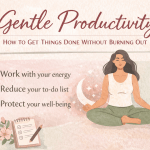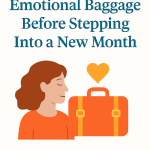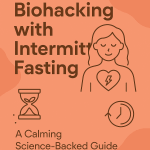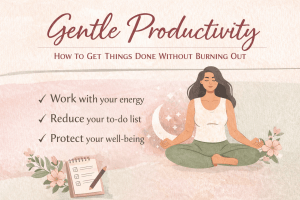Nowadays, I’ve started to snore loudly, and my folks are not happy with that; sometimes, I would wake up in the middle of my snoring and wonder where on earth I am. Jokes apart, sleep apnea could spell serious trouble if left untreated. So join me as we try to find easy remedies for sleep apnea.
So what is sleep apnea?
It’s a sleep disorder where your breathing repeatedly stops and starts. For instance, you may have sleep apnea if you feel tired after a whole night’s sleep of snoring.
What could happen if sleep apnea is not treated?
If not treated, sleep apnea may lead to the following.
- High blood pressure
- Heart problems
- Metabolic syndrome
- Type 2 diabetes
- Liver problems
- Medical and surgical complications
7 Easy Remedies for Sleep Apnea
Note: This post contains affiliate links.
It’s not all so gloomy and dark when we’re talking about sleep apnea. With proper medical guidance, you can lead an active, healthy life. Listed below are some easy remedies for sleep apnea. These simple tips could enhance your sleep quality.
#1. Best pillow for sleep apnea
While a pillow can’t cure sleep apnea, it may help improve your quality of sleep. If you have sleep apnea, you may consider a pillow that elevates your head and reduces pressure on your cervical spine. This action helps open your airways and helps reduce symptoms and instances of sleep apnea.
The most common form of this disorder is obstructive sleep apnea. Fortunately, CPAP therapy effectively treats this condition. However, using a CPAP machine will need some changes to the sleep environment.
But CPAP users find that their masks press into the pillow, causing mask leaks and discomfort. Using the best pillow for sleep apnea helps improve CPAP performance and comfort while you enjoy a good quality sleep.
While choosing the best pillow for sleep apnea, consider the following.
- The design
- Level of comfort
- Whether they’re hypoallergenic and hygienic
- Whether it’s breathable
- And the suitable loft or height
The Neck Relief Ergonomic Cervical Pillow from Cushion Lab has all the above features. Designed by in-house ergonomists, this pillow gently cradles your head. It stretches the neck, thus helping your neck maintain its natural curve and supporting healthy alignment for a soothing slumber. This pillow is medium-firm and great for back or side sleepers.
Would you please get it here?
#2. Healthy weight
Excess weight can cause fat deposits on your neck. These deposits are called pharyngeal fat, which could block your upper airway when you sleep. So air gets squeezed through the restricted airway causing a loud noise. Likewise, your abdominal fat can decrease lung volume resulting in poor airflow.
Fortunately, lifestyle changes like reducing your weight can help your breathing flow and reduce sleep apnea symptoms. Weight loss reduces fatty deposits in your neck area and increases airflow. Likewise, the reduction in abdominal fat increases lung volume and helps you to sleep well.
#3. Practice yoga
Yoga emphasizes pranic breathing, which strengthens your airways. Although not a direct treatment, yogic breathing tones, strengthens and opens up your upper airway muscles, thus helping to reduce the symptoms of sleep apnea.
A Wisconsin Sleep Cohort Study found that 7 hours of yoga practice a week significantly reduced sleep apnea episodes compared to no exercise. The following yoga poses will significantly boost your sleep health.
- Lying butterfly
- Legs up the wall
- Corpse pose
#4. Change your sleep position.
When you sleep in a straight position, your tongue falls back and blocks the airway increasing the snoring sound. Contrarily sleeping on your sides or your stomach position could significantly reduce snoring or sleep apnea problems.
The four best sleeping positions to reduce sleep apnea include
- On your right side
- Your left side
- On your belly
- Your back with your head raised gently.
Be known that Cushion Lab has pillows perfectly suitable for all sleeping positions.
For back sleepers: Ergonomic Contour pillow
For side sleepers: Neck support contour pillow and Adjustable shredded memory foam pillow
Stomach sleepers: Ergonomic contour pillow, Shredded adjustable memory foam pillow
#5. Avoid alcohol
If you suffer from sleep apnea, the best advice is to avoid drinking alcohol because it can cause delayed arousal response time. Your body naturally wakes up when you can’t breathe.
Alcohol usage relaxes your muscles, reduces arousal response, and prolongs an apnea episode. This action reduces oxygen flow to your lungs, making you feel tired and unrested while you get up.
#6. Use antisnoring mouthpiece
Using a mouthpiece could significantly help you to reduce snoring. Also called mouthguards, these devices fall into two categories.
- Mandibular advancement devices
- Tongue retaining devices
- MADs fit inside your mouth and push your lower jaw forward, opening up your airway and reduces snoring.
- TRDs grip your tongue and prevent it from falling back into your throat, which commonly causes snoring for back sleepers.
To enhance sleep quality, try SnoreMeds, a custom-fitted anti-snoring mouthpiece that gently repositions your lower jaw and helps you to sleep peacefully.
Likewise, you can try Sleepon, an FDA-approved mandibular repositioning device to enjoy a good night’s sleep.
#7. Use humidifier
Humidifiers can help reduce snoring caused by inhaling dry hair because it increases the moisture in the air. Dry air can irritate your respiratory system. Using a humidifier decreases congestion, opens airways, and encourages clear breathing.
Likewise, upper airway symptoms such as mouth dryness and nasal congestion are common in people with sleep apnea who use the CPAP machine. Humidifiers reduce these symptoms and make the treatment more comfortable. So experts advise you to go in for CPAP machines with built-in humidifiers.
Wrapping up
Sleep apnea is a serious concern. Just try all these home remedies and choose the ones that suit you the best. However, take care to continue your prescribed medications.
For some, even surgery may be recommended as a practical approach to treat this condition. To discuss your options with your doctor, see immediate medical attention if your situation seems to worsen.














